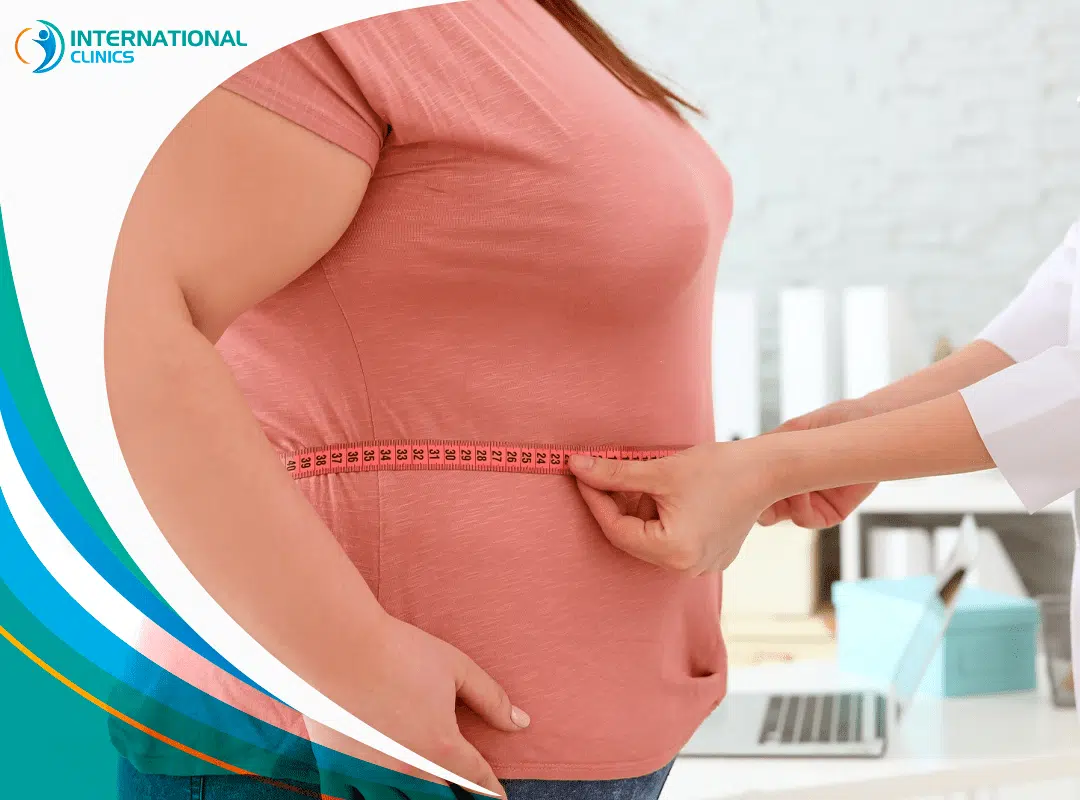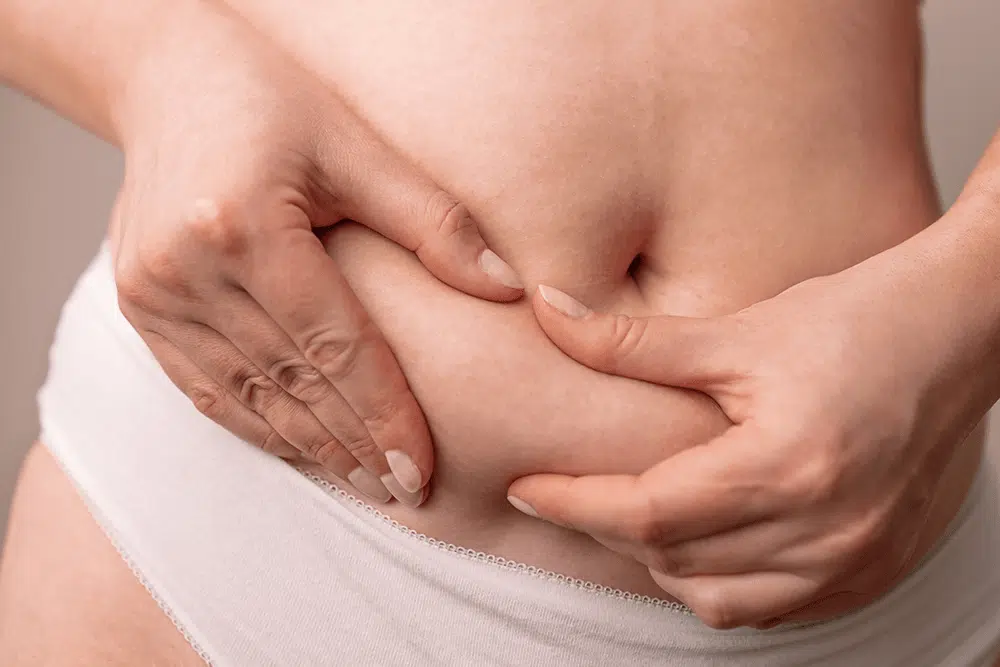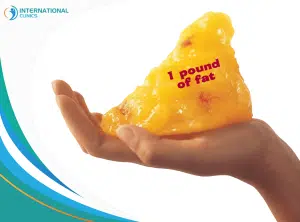The expected results and changes of the gastric sleeve before and after 3 months may offer you insights into what to expect shortly before and after the procedure and help you familiarize yourself with the lifestyle modifications and adjustments that you will have to make after the surgery.
Certainly, this knowledge will enable you to prepare for a successful recovery and effective weight loss. After all, if you are planning to have a gastric sleeve in Turkey, you need to understand the lifestyle changes and modifications that you will need to make following the procedure.
Moreover, being aware of what to expect before and after the procedure can help you heal more quickly and achieve weight loss goals more efficiently. Hence, it’s a great idea to review the results and potential side effects that could arise after the procedure.
Gastric Sleeve Before and After 3 Months: Results
The results patients experience after gastric sleeve are not always consistent, especially in the first 3 months. Of course, your life is going to change after the procedure, but the nature of this change is primarily subjective and depends on your unique case.
Weight Loss Results
During the first 3 months after gastric sleeve surgery in Turkey, patients usually experience significant weight loss within a very short time. Indeed, the first 3 months are the most important period in terms of shedding pounds.
Luckily, there is much research that has been conducted to show the success rates of gastric sleeve surgery in the short and long term. Patients can expect to lose an average of 25-35% of their excess weight in the first 3 months, which could amount to approximately 30-40 pounds (13-18 kg).
On average, gastric sleeve patients lose 65-70% of their excess weight within a year, which is around 2-3 pounds (1-2 kg) per week. In two years, some patients have lost up to 75% of their excess weight.
However, you must follow a post-operative diet directly after the surgery, which involves gradually transitioning from liquid to solid food. This dietary modification is expected to result in significant weight loss in the first three months following surgery.
Disease Prevention Results
The resolution of obesity-related diseases typically happens within one to two years following obesity surgery in Turkey. So, it’s unlikely to notice a great improvement in diabetes or hypertension within just 3 months after the procedure.
For patients with type II diabetes, gastric sleeve surgery can be beneficial in reducing their reliance on medication. According to a recent report, approximately 39% of patients who used to take medication for their type II diabetes have discontinued their medication after one year of the surgery.
Similarly, patients with hypertension can also benefit from gastric sleeve surgery. On average, 57.2% of patients who used to take medication for hypertension stopped taking them after one year following the procedure.
Gastric Sleeve Before and After 3 Months: Pictures
Weight loss results after gastric sleeve surgery may vary depending on a range of factors such as overall health status, the ability to adhere to a healthy lifestyle, and other unique factors.
Gastric sleeve before and after pictures usually show the changes people record in the months and years following the procedure. A photograph taken three months after surgery may reveal a significant reduction in weight and a slimmer appearance overall.
Such progress may lead to an improvement in posture and facial expression, indicating a newfound comfort and confidence in one’s body. Below are some pictures taken by people in the months following the procedure:
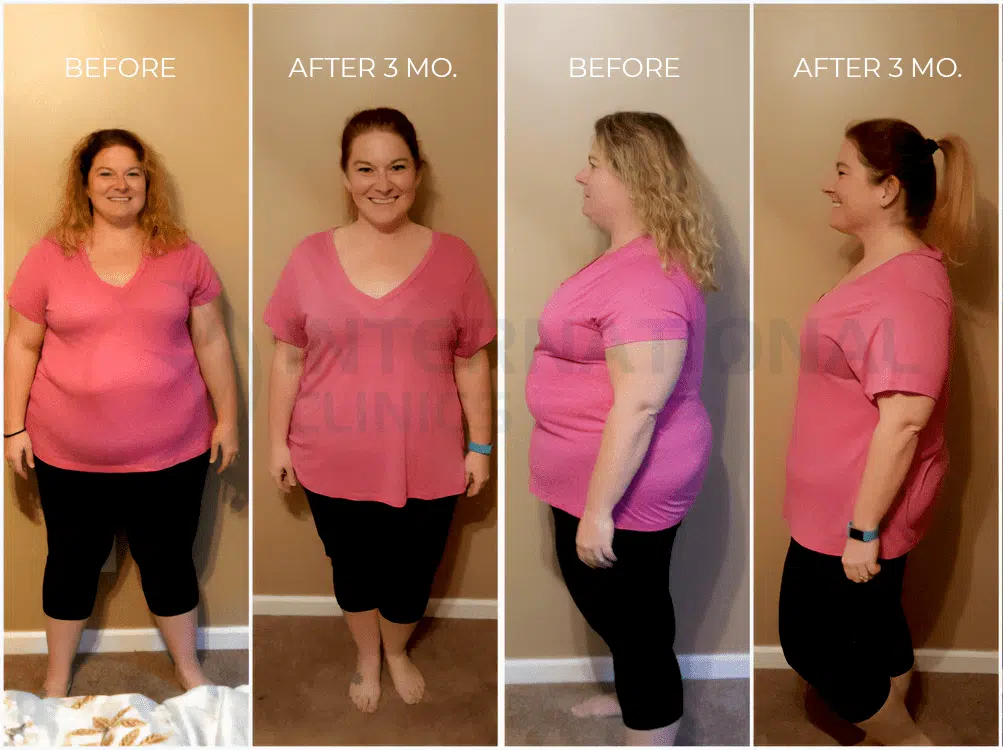
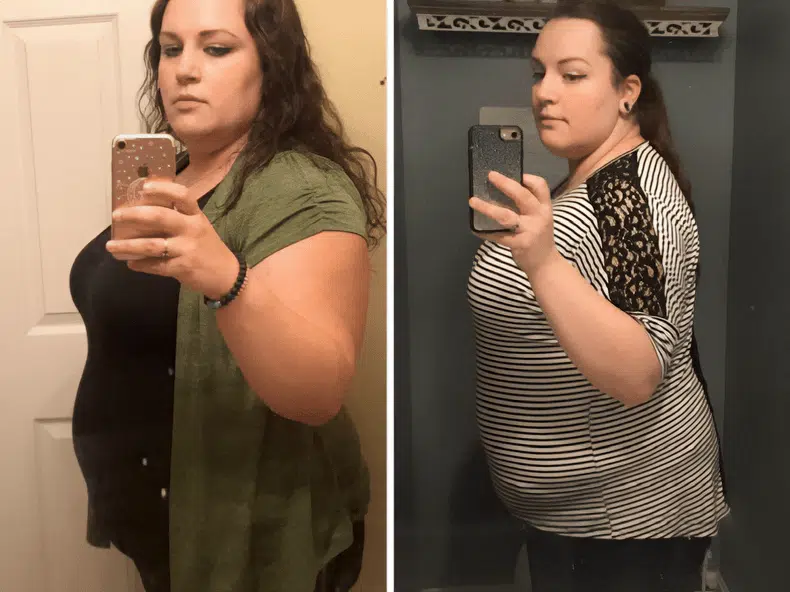
Gastric Sleeve Before and After 3 Months: Videos
For more videos, please visit our Instagram page here.
Delve into: gastric sleeve 10 years later
Gastric Sleeve Before and After 3 Months: Potential Risks
In the 3 months that follow gastric sleeve surgery, you may encounter a variety of symptoms that may include:
- Fatigue or tiredness
- Nausea or indigestion
- Difficulty sleeping
- Vomiting
- Weird odors
- Abdominal pain
Additionally, you may experience emotional ups and downs, poor appetite, gas or flatulence, and diarrhea. You must monitor these symptoms and report them to your healthcare provider to ensure proper care and management, especially if other critical symptoms have emerged, such as leaks.
Gastric Sleeve Before and After 3 Months: Things to Consider
There is a couple of things that you need to consider during the few months that follow the procedure, such as:
- Wound care: Taking care of your surgical incision site should be overlooked after gastric sleeve surgery. According to a study, the overall surgical site infection rate following bariatric surgery is 1.4%. Weirdly enough, laparoscopic bariatric surgery showed a higher infection rate than open bariatric surgery.
- In case your surgical incision site becomes infected, you may need to have an abdominal drain placed or even a revisional surgery. Therefore, proper wound care is of high significance to prevent the occurrence of infections.
- Pain management: Managing pain is an important aspect of post-operative care for individuals undergoing surgery. After all, patients may experience pain for various reasons, including incision site pain, abdominal pain, and shoulder pain. You should communicate with your healthcare provider about any persistent or severe pain to get the proper medications that can relieve the pain.
- Physical activity: Light movement and walking are recommended immediately following surgery to promote blood circulation and enhance healing. Patients can engage in easy-to-do exercises such as walking and other post-operative exercises to optimize their recovery.
Loose Skin Gastric Sleeve Before and After 3 Months
Although gastric sleeve surgery can greatly enhance your general health and well-being, one common side effect that can be frustrating for many is loose skin, which develops as a result of significant weight loss.
Thankfully, there are many body sculpting procedures that can combat loose skin in different areas of the body, including the chest, arm, and back.
Many people are distressed by this annoying effect because it can largely impact their appearance. There are several factors that increase the likelihood of loose skin after gastric sleeve, namely:
- Age: As commonly believed, older people tend to have less elastic skin. This highly contributes to the formation of loose skin and scars after weight loss procedures.
- Surgery type: The type of surgery can also impact the likelihood of loose skin. Gastric sleeve in general causes the formation of less loose skin compared to other procedures such as gastric bypass, which causes more excess and loose skin due to its resulting rapid weight loss.
- Genetics: Genetic makeup plays a significant role in how much loose skin can develop. Unfortunately, there is no way around that as genetics remain unchanged all lifelong.
Other Successful Bariatric Procedures
If the results of gastric sleeve seem unsatisfactory for you or the gastric sleeve cost in Turkey feels heavy on the pocket, your surgeon may suggest other options, such as:
- Mini gastric sleeve: This procedure is just like the standard gastric sleeve, but with less invasiveness and less potential weight loss. Instead of cutting 80% of the stomach as the case with a standard gastric sleeve, your surgeon will only cut 40% of the stomach if you choose the mini sleeve option.
- BariClip: For those who search for a less invasive form of bariatric surgery, a BariClip might be the answer. This procedure is relatively new, but according to testimonials and reviews, it can yield promising results.
- Gastric balloon: The stomach or gastric balloon is another less invasive procedure that can bring relatively good weight loss results, but it’s a temporary solution, not permanent as the case with gastric sleeve and gastric bypass.
The Bottom Line
The changes that can be witnessed by gastric sleeve before and after 3 months are worth investigating, especially for people who are still reluctant about the whole deal of bariatric procedures.
You may start noticing weight loss in the first 3 months after the procedure, but you need to wait a year before noticing the drastic changes this procedure can bring.
International Clinics in Turkey provides exceptional packages to those who seek affordable, safe gastric sleeve abroad. Our patients often report weight loss changes in the months that directly follow the procedure. You can reach us right away using the Contact Us button below.

Frequently Asked Questions (FAQs)
How Much Weight Can You Lose in 3 Months After Gastric Sleeve?
You can lose up to 12 pounds (5 kg) of your weight in the 3 months after gastric sleeve. However, weight loss isn’t always the same after the procedure because there are several factors that contribute to the success of your gastric sleeve surgery.
Can You Drink 3 Months After Gastric Sleeve?
You must avoid alcohol in the first 3 months after the procedure. In fact, surgeons recommend patients avoid alcoholic beverages for at least 6 months after gastric sleeve because even small amounts of alcohol can cause intoxication and low blood sugar.
What Can I Eat 3 Months After Gastric Sleeve?
You can eat different meals and dishes 3 months after gastric sleeve, including whole grains, meat, fish, low-fat dairy products, and vegetables and fruits. Focus mainly on eating nutrient-rich food during this period.
How Many People Get Fat Again After Gastric Sleeve?
Around 1 in every 5 patients get fat after gastric sleeve, especially in the first 5 years that follow the procedure. Some of them, unfortunately, regain around 15% of their original weight. Unhealthy dietary habits are the main culprit behind this phenomenon.
What Happens If You Overeat with a Gastric Sleeve?
If you overeat with a gastric sleeve, you may develop annoying symptoms, such as abdominal pain and discomfort. Some people may also experience “plugging”, which makes you feel like the food has been stuck in your stomach. Furthermore, overeating may lead to stomach stretching.
How Do I Know When I’m Full After Gastric Sleeve?
You can know when you’re full after the gastric sleeve if you start to feel a pressure or compression feeling in the bottom of your chest or between your belly and your chest.
Read more:
Gastric Sleeve Surgery Abroad: Best Destinations & Packages
Obesity Surgery Cost in Turkey
